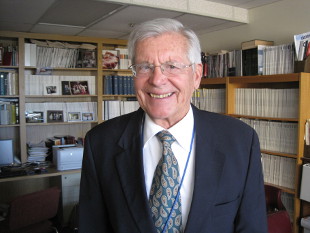 TEMPLE UNIVERSITY HEALTH SYSTEMGuenther Boden, endocrinologist and diabetes researcher, died last month (October 30) in Philadelphia. The cause was pancreatic cancer. He was 80.
TEMPLE UNIVERSITY HEALTH SYSTEMGuenther Boden, endocrinologist and diabetes researcher, died last month (October 30) in Philadelphia. The cause was pancreatic cancer. He was 80.
Boden graduated from medical school in Germany in 1959, and completed postgraduate training in both Germany and the U.S. He began a 45-year tenure at Temple University in Philadelphia in 1970 and remained active there until his death.
The US National Institutes of Health funded Boden’s research for more than 40 years. He authored landmark studies on insulin resistance and sensitivity during his career, which helped advance research for type 2 diabetes treatments. Boden demonstrated the link between fatty acids in the blood and a loss of insulin activity, which leads to high blood sugar.
In September, Boden and his colleagues published a study on adults who were confined to a hospital bed and consumed 6,000 calories per day for a week. The study participants ...




















